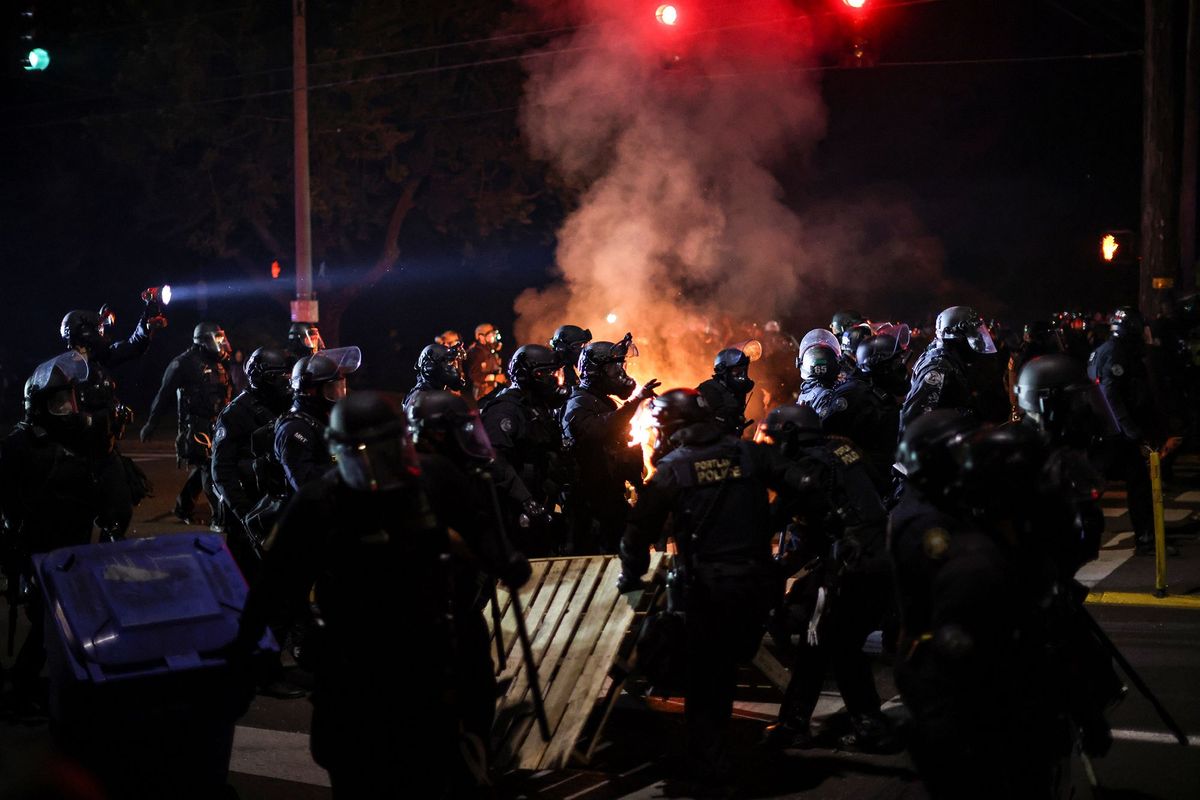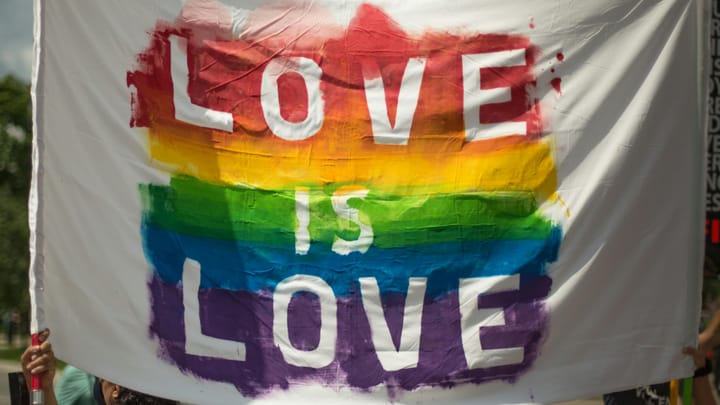Is Florida’s new anti-riot bill a response to civil rights protests?

A few minutes every morning is all you need.
Stay up to date on the world's Headlines and Human Stories. It's fun, it's factual, it's fluff-free.
The bill establishes harsh penalties for assaulting law-enforcement officers and introduces third degree felonies for those who “willfully and maliciously deface, injure, or otherwise damage” historical or memorial property. Those convicted could face up to five years in jail.
After a year of major protests around the United States, legislation across a number of states has been proposed in an attempt to crack down on rioting. Despite much of the country being under lockdown, protests have occurred in response to police reform, COVID-19 restrictions and the 2020 presidential election results.
As the protests continued into 2021, governments both federally and locally have responded in different ways. Florida recently passed an anti-riot bill imposing harsher penalties for damages to property and assault on law-enforcement, among other things.
What’s in the bill?
The bill, called HB1, targets a wide range of actions around protests and policing of said protests.
Language in the bill defines a “riot” as “for a person, assembled with two or more other persons and acting with a common intent, to use force or threaten to use imminent force, to compel or induce” injury to another person, damage to property, or danger of injury or damage.
The bill establishes harsh penalties, requiring those arrested to stay in jail until they appear in court. The bill also increases penalties for assaulting law-enforcement officers and introduces third degree felonies on anyone who “willfully and maliciously deface, injure, or otherwise damage” historical or memorial property. Those convicted of a third degree felony could face up to five years in jail.
Additionally, the bill protects local law-enforcement agencies’ operating budgets and would hold any local government who takes steps to defund law enforcement liable for any damages that may occur during a protest.
The bill also adds protections to drivers who hit protesters, charging the “rioter” if they, “By force, or threat of force, endangers the safe movement of a vehicle traveling on a public street, highway, or road.” If the driver claims self-defense, they can’t be sued for damages if people are hurt or killed by their vehicle, though they can still face criminal charges.
The bill was signed into law on April 21, 2021. In a press conference held after signing the legislation, Florida’s Republican governor, Ron DeSantis, described the bill as “holding those who incite violence in our communities accountable, supporting our law enforcement officers who risk their lives every day to keep us safe and protecting Floridians from the chaos of mob violence.”
“It’s the strongest anti-rioting pro-law enforcement piece of legislation in the country,” DeSantis said at another press conference. “We’re not going to end up like Portland.”
A response to movements to defund the police?
HB1 comes at a time when other cities and local governments are proposing legislation at the opposite end of the political spectrum in response to the murder of George Floyd by former police officer Derek Chauvin in Minneapolis, Minnesota.
Protests erupted around the US following the video of Floyd’s murder, including in Portland, Oregon. Among the many peaceful protesters were also those who set fire to the city’s police building and toppled statues of Abraham Lincoln, Theodore Roosevelt and other historical figures.
Despite the unrest throughout the country, a report released by The Armed Conflict Location & Event Data Project found that around 93% of protests aimed at racism and police violence remained peaceful.
Calls to defund the police gathered steam thanks to protests, with many local governments looking to divert money in city budgets from law enforcement to social programs. On December 7, 2020, the Minneapolis City Council voted to divert millions of dollars from a proposed police budget to other city services like the city’s Office of Violence Prevention.
Most politicians, including President Joe Biden, have refused to back any effort to defund police. In a recent poll conducted by USA Today, only 18% of respondents said they supported doing so.
Florida’s HB1 has already seen a legal challenge, with attorney Aaron Carter Bates filing a lawsuit on behalf of a nonprofit advocacy group called the Lawyers Matter Task Force. The lawsuit claims the bill is unconstitutional and violates protesters’ first amendment rights.
“The purpose of these laws are nothing more than an attempt to silence the Black Lives Matter movement and other civil organizations by limiting the ability to protest,” Bates said in a statement. “The First Amendment is a pillar of American democracy, and the ‘anti-riot’ laws clearly strip Floridians of their freedom of speech and right to assemble.”
Have a tip or story? Get in touch with our reporters at tips@themilsource.com




Comments ()